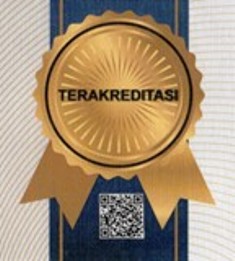The Influence of Learning Style and Learning Motivation on Student Learning Outcomes in Science Subjects Natural and Social
DOI:
https://doi.org/10.24036/sjdgge.v8i1.577Keywords:
Learning Style, Learning Motivation, Learning ResultsAbstract
This research aims to describe; a) The influence of learning styles on student learning outcomes in Natural and Social Sciences subjects, b) The influence of learning motivation on student learning outcomes in Natural and Social Sciences subjects, c) The influence of learning styles and learning motivation on student learning outcomes in subjects Social Science and Natural Sciences lessons. This type of research is quantitative research. The population and sample in this study were all 72 students in grades IV, V, VI of the Negri 15 Linge Elementary School, Central Aceh Regency. Data collection techniques use observation, questionnaires and documentation. Data analysis techniques use multiple linear regression test analysis. The research results show that; a) there is a significant influence of learning style on student learning outcomes in Natural and Social Sciences subjects, where the Sig. for the (partial) influence of learning style on learning outcomes is 0.00 < 0.05 and the calculated t value is 5.210 > 1.994 so it can be concluded that H1 is accepted which means there is an influence of learning style (X1) on Learning Outcomes (Y). b) There is a significant influence between learning motivation on student learning outcomes in Natural and Social Sciences subjects, where the Sig. for the (partial) influence of learning motivation on learning outcomes is 0.00 < 0.05 and the calculated t value is 3,199 > 1.99 so it can be concluded that H2 is accepted, which means there is an influence of learning motivation (X2) on learning outcomes (Y), c) There is a significant influence of learning style and learning motivation on student learning outcomes in Social Sciences and Natural Sciences subjects where, the Sig. for the (simultaneous) influence of learning style and learning motivation on learning outcomes is 0.00 < 0.05 and the calculated F value is 44.06> 3.13 so it can be concluded that H3 is accepted which means there is an influence of Learning Style (X1) and Learning Motivation ( X2) simultaneously on Learning Outcomes (Y)
Downloads
References
2. Feldman, R. S. (2012). Pengantar Psikologi-Understanding Psychology. Jakarta: Salemba Humanika.
3. Slameto. (2003). Belajar dan Faktor-Faktor yang Mempengaruhinya. Jakarta: Rineka Cipta.
4. Taiyeb, A. M., & Mukhlisa, N. (2015). Hubungan Gaya Belajar dan Motivasi Belajar dengan Hasil Belajar Biologi Siswa Kelas XI IPA SMA Negeri 1 Tanete Rilau. Jurnal Bionature, 16 (1), hlm. 8-16.
5. Khoeron, I. R., Sumanrna, N., & Permana, T. (2014). Hubungan Gaya Belajar Terhadap Prestasi Belajar Peserta Didik Pada Mata Pelajaran Produktif. Journal of Mechanical Engineering Education, 1 (2), hlm. 291-297.
6. Yilmaz, M., & Orhan, F. (2010). High School Students Educational Usage of Internet and Their Learning Approaches. World Journal on Educational Technology, 2 (2), hlm. 100-112.
7. DePorter, B. & Hernacki, M. (2015). Quantum Learning. Membiasakan Belajar Nyaman dan Menyenangkan. Diterjemahkan oleh: Alwiyah Abdurrahman. Bandung: Kaifa.
8. Gholami, S., & Bagheri, M. S. (2013). Relationship between VAK Learning Styles and Problem Solving Styles regarding Gender and Students’ Fields of Study. Journal of Language Teaching and Research, 4 (4), hlm. 700-706.
9. Gilakjani, A. P. (2012). Visual, Auditory, Kinesthetic Learning Styles and Their Impacts on English Language Teaching. Journal of Studies in Education, 2 (1), hlm. 104-113.
10. Putra, F., Atmojo, K., & Sujadi, I. (2014). Eksperimentasi Model Pembelajaran Kooperatif Tipe TGT Berbantuan Software CABRI 3D Ditinjau Dari Gaya Belajar Siswa. Jurnal Elektronik Pembelajaran Matematika, 2 (8), hlm. 816-827.
11. Ramlah, F. D. (2014). Pengaruh Gaya Belajar dan Keaktifan Siswa Terhadap Prestasi Belajar Matematika (Survey Pada SMP Negeri di Kecamatan Klari Kabupaten Karawang). Jurnal Ilmiah Solusi 1 (3), hlm. 68-75.
12. Sukmadinata, N. S. (2009). Landasan Psikologi Proses Pendidikan. Bandung: PT Remaja Rosdakarya.
13. Sailatul Ilmiyah. 2006. Profil Pemecahan masalah Matematika Siswa SMP Pada Materi Pecahan Ditinjau Dari Gaya Belajar. Surabaya: Univesitas Negei Surabaya,
14. Nurlaela Luthfiyah. 2011. Model Pembelajaran, Gaya Belajar, Kemampuan Membaca dan Hasil Belajar. Surabaya: University press.
15. Sadiman, A.M 2002. Interaksi dan Motivasi Belajar mengajar. Jakarta; PT. Raja Grafindo Persada
16. Uno, Hamzah. 2013. Teori Motivasi dan Pengukurannya. Jakarta: Bumi Aksara
17. Dalyono. 2010. Psikologi Pendidikan. Jakarta: Rineka Cipta, 2010
18. Iskandar. 2012. Psikologi Pendidikan Sebuah Orientasi Baru. Jakarta.
19. Purwa. 2012. Psikologi Pendidikan. Jogjakarta: Ar-Ruzz Media.
20. Munif. 2011. Sekolahnya Manusia: Sekolah Berbasis Multiple Intelegences (Cet. XI; Bandung: Kaifa
21. Chania, Y., Haviz, M., & Sasmita, D., (2016). Hubungan Gaya Belajar dengan Hasil Belajar Siswa Pada Mata Pelajaran Biologi Kelas X SMAN 2 Sungai Tarab Kabupaten Tanah Datar. Journal of Sainstek, 8 (1), 77-84.
22. Yazici, K. (2017). The Relationships between Learning Styles, Test Anxiety and Academic Achievement. Journal of Educational Research, 5 (1), hlm. 61-71.
23. Ishak, N. B., & Awang, M. M. (2017). The Relationship of Student Learning Styles and Achievement in History Subject. Journal of Social Science and Humanities Invention, 4 (3), hlm. 3372-3377.
24. Rahman, A., Anshari, S., Ahmar., & Rusli (2016). The Influence of Cooperative Learning Models on Learning Outcomes Based on Students Learning Styles. World Transactions on Engineering and Technology Education, 14 (3), hlm. 425-430.
25. Widyawati, S. (2016). Pengaruh Gaya Belajar Terhadap Prestasi Belajar Mahasiswa Program Studi Pendidikan Matematika (IAIM NU) Metro. Jurnal Pendidikan Matematika, 7 (1), hlm. 107-114.
26. Rijal, S., & Bachtiar, S. (2015). Hubungan antara Sikap, Kemandirian Belajar, dan Gaya Belajar dengan Hasil Belajar Kognitif Siswa. Jurnal Bioedukatika, 3 (2), hlm. 15-20.
27. Bire, A. L., Geradus, U., & Bire, J. (2014). Pengaruh Gaya Belajar Visual, Auditorial, dan Kinestetik Terhadap Prestasi Belajar Siswa. Jurnal Kependidikan, 44 (2), hlm. 168-174.
28. Khoeron, I. R., Sumanrna, N., & Permana, T. (2014). Hubungan Gaya Belajar Terhadap Prestasi Belajar Peserta Didik Pada Mata Pelajaran Produktif. Journal of Mechanical Engineering Education, 1 (2), hlm. 291-297.
29. Markovic, S. & Jovanovic, N. (2012). Learning Style as a Factor Which Affects the Quality Course, Southern Economic Jurnal, 77 (1), hlm. 224-239.
30. Gholami, S., & Bagheri, M. S. (2013). Relationship between VAK Learning Styles and Problem Solving Styles regarding Gender and Students’ Fields of Study. Journal of Language Teaching and Research, 4 (4), hlm. 700-706.
31. Gilakjani, A. P. (2012). Visual, Auditory, Kinesthetic Learning Styles and Their Impacts on English Language Teaching. Journal of Studies in Education , 2 (1), hlm. 104-113.
32. Jahanbakhsh, R. (2012). Learning Styles and Academic Achievement: A Case Study of Iranian High School Girls Student. Procedia - Social and Behavioral Sciences, (51), hlm. 1030-1034.
33. Abidin, M. J. Z., Rezaee, A. A., Abdullah, H. N., & Singh, K. K. B. (2011). Learning Styles and Overall Academic Achievement in a Specific Educational System. Journal of Humanities and Social Science, 1 (10), hlm. 143-152.
34. Nurlia, Hala, Y., Muchtar, R., Jumadi, O., & Taiyeb, A. M. (2017). Hubungan antara Gaya Belajar, Kemandirian Belajar, dan Minat Belajar dengan Hasil Biologi Siswa. Jurnal Pendidikan Biologi, 6 (2), hlm. 321-328.
35. Setiana, D. S. (2016). Komparasi Penerapan Metode Pembelajaran CTL dan Open-Ended dengan Memperhatikan Gaya Belajar ditinjau dari Prestasi dan Minat Belajar Matematika. Jurnal Mercumatika, 1 (1), hlm. 13-32.
36. Tanta. (2010). Pengaruh Gaya Belajar Terhadap Hasil Belajar Mahasiswa pada Mata Kuliah Biologi Umum Program Studi Pendidikan Biologi Universitas Cendrawasih. Jurnal Kependidikan Dasar, 1 (1), hlm. 7-21.
37. Damavandi, A. J. (2011). Academic Achievement of Student with Different Learning Styles. Journal of Pscychological Studies, 3 (2), hlm. 186-192.
38. Gokalp, M. (2013). The Effect of Student Learning Styles to Their Academic Success. Creative Education, 4 (10), hlm. 627-632.
39. Bakar, R. (2014). The Effect of Learning Motivation on Students Productive Competencies in Vocational High School,West Sumatra. International Journal of Asian Social Science, 4 (6), hlm. 722-732.
40. Valerio, K. (2012). Intrinsic Motivation in the Classroom. Journal of Student Engagement: Education Matters, 2 (1), hlm. 30-35.
41. Lim, D. H., & Morris, M. L. (2009). Learner and Instructional Factors Influencing Learning Outcomes within a Blended Learning Environment. Educational Technology & Society, 12 (4), hlm. 282-293.
42. Mappeasse, M. Y. (2009). Pengaruh Cara dan Motivasi Belajar Terhadap Hasil Belajar Programmable Logic Controller (PLC) Siswa Kelas III Jurusan Listrik Sekolah Menengah Kejuruan Negeri 5 Makassar. Journal MEDTEK, 1 (2), hlm. 136-143.
43. Tella, A. (2007). The Impact of Motivation on Students Academic Achievement and Learning Outcomes in Mathematics among Secondary School Students in Nigeria. Eurasia Journal of Mathematics, Science & Technology Education, 3 (2), hlm. 149-156.
44. Dedi, R., Hendrayana, A. S., Erisyani, E., & Setiana, N. (2016). Pengaruh Motivasi Belajar, Gaya Belajar, dan Kemandirian Belajar Terhadap Hasil Belajar Mahasiswa S1 PGSD Masukan Sarjana di UPBJJ UT Bandung. Jurnal Pendidikan Dasar, 8 (2), hlm. 163-177.
45. Koriaty, S., & Nurbani. (2014). Pengaruh Gaya Belajar dan Motivasi Terhadap Prestasi Belajar Mahasiswa Pada Mata Kuliah Organisasi dan Struktur Komputer. Jurnal Pendidikan Informatika dan Sains 4 (2), hlm. 287-296.
46. Taiyeb, A. M., & Mukhlisa, N. (2015). Hubungan Gaya Belajar dan Motivasi Belajar dengan Hasil Belajar Biologi Siswa Kelas XI IPA SMA Negeri 1 Tanete Rilau. Jurnal Bionature, 16 (1), hlm. 8-16.
47. Darmawati, J. (2013). Pengaruh Motivasi Belajar dan Gaya Belajar Terhadap Prestasi Belajar Ekonomi Siswa SMA Negeri di Kota Tuban. Jurnal Ekonomi Pendidikan dan Kewirausahaan, 1 (1), hlm. 79-90.
48. Rhamdan, D. (2013). Hubungan Gaya Belajar dan Motivasi Belajar dengan Hasil Belajar Kewirausahaan Kelas XI di SMK Negeri 1 Bogor. Jurnal Teknologi Pendidikan, 2 (2), hlm. 37-58.












